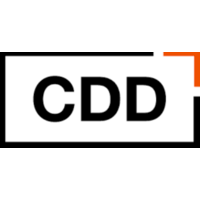AdWords Campaign Planning
Do Keyword Research – Tools, such as Google’s free AdWords Keyword Planner play a critical role. A good place to start is by brainstorming your own list of keywords you think are relevant in your industry. Be sure you select general keywords about what you do as well as keywords that describe how you do it. I also suggest building your campaigns based on the structure of your website. Are there categories on your website? Are the products and services you offer organized? That’s the same structure you should use for building out your campaigns.
Move your keyword list into the Keyword Planner and you’ll have an expanded list of keywords along with data on how often people search for those terms and how many competitors are also targeting those terms. Carefully review the expanded list and eliminate the keywords you know will be irrelevant.
Next, you’ll want to organize similar keywords into ad groups. This is extremely important. You have to organize your keywords into campaigns and ad groups. For example, IT Consulting, IT Consulting Services and IT Consulting Companies should all be in the same ad group, whereas Cloud Service Provider would be in another. Segmenting your keywords like this will make it much easier to analyze your data later.
You’ll also want to be sure that you create ad text specific to keywords within an ad group – Each ad group should have at least one ad text that specifically mentions the topic of that ad group. This will improve your ad score (a metric measured by Google) and give the searcher the ability to to easily connect your ad to their search phrase.
Link ads to landing pages that cover the same topic as the keywords in an ad group – Sending the people who click on your ads to landing pages that cover a similar topic as the keywords within each group will help your score. This should be a no-brainer and as your ads become more specific it will be tempting to link ads to pages you already have, but you should continue to build out new landing pages.
The less related your ads are to your landing pages, the more likely visitors are to bounce.
Utilize Exact Match – Exact Match targeting means your ads will appear only when someone searches for the exact keyword you’re targeting. This is helpful for small businesses that are new to AdWords because it gives them greater control over their ads and prevents them from wasting money on irrelevant keywords. When you’ve gathered data about how your keywords perform, there could be situations where using the broad match, or phrase match setting would be useful.
Utilize Geo Targeting – If you provide services within a confined geographic area, be sure your campaigns are set upto display ads only to searchers within that area. Otherwise, you will end up paying for clicks from people who you can’t provide services to.
That being said, planning can only do so much. You won’t know how your campaigns will perform until they are live. Be sure that you are putting in the time each day to monitor the performance of your campaigns.

